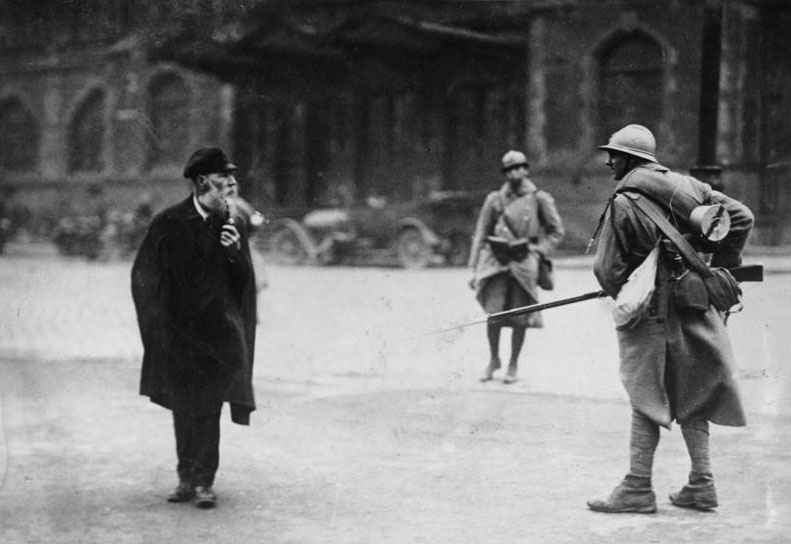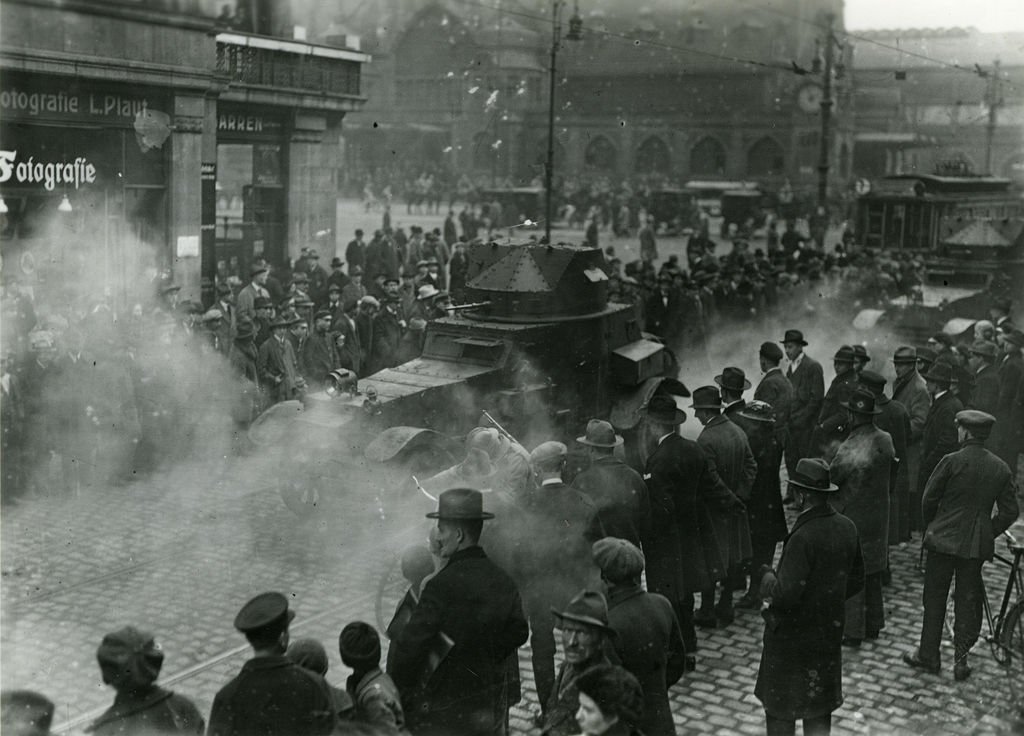Chapter VI: The Crucible
______________
Time Period: July, 1920
Once the news of the successful capture of Hannover province was relayed south, the second phase of the offensive began. Swinging in circular sweep below Hannover province, the 3rd and 4th battalions of the German Red Army advanced from their encamped positions on the western border of Anhalt province, moving directly on the Ruhr by way of northern Hessen-Nassau.
“The forces of the French bourgeoisie may attempt to goad us into a pitch battle once our shock attack drives them into retreat – but take heed – we haven’t the men or material to match against the numbers of the Allied armies. Focus therefore should be placed solely on driving the French from the Ruhr – then the construction of defensive fortifications within in the heart of the valley,” said Eberlein, commander of the 3rd Battalion to his two junior commanders.
On the morning of July 8th, after advancing for several days straight, both battalions arrived at the outskirts of the Ruhr. Pausing to rest and reform for semi-urban combat, the armored cars were first moved toward the front of the formation to act as the spearhead of the offensive, while simultaneously the infantry was positioned at the flanks and the rear. “We must capitalize on the element of surprise and use it to rout as many of the French garrison as possible; our armored cars will act as the
shock to precipitate it,” said Eberlein as he stood pointing in the direction of the valley.
After all preparations were complete the order to advance was called.
Riding in the right flanking car of the armored column, Brandler charged ahead with his direction being aimed directly at the heart of the valley. After a minute, the rest of the infantry began their march from behind.
Down below French troops, listless and disorganized after several weeks of mutinous looting and reprisal violence aimed at the rioting Germans heard the rumbling of the advancing Red Army. As panic began to set in, shouts from troops positioned on the east of valley began to echo out. “The German Army is advancing upon the Ruhr! – The German Army is advancing upon the Ruhr!” Mistaking the troops for a remnant of the Imperial army, the garrison immediately began to form ranks to prepare for defensive action, while simultaneously attempting to contact Paris with news of renewed hostility between the war powers.
However, within minutes the armored column, marked clearly with the standard of the German Red Army smashed into the heart of the hastily prepared frontlines and began to engage the French soldiers; instantly it was understood that it was the army of Luxembourg that had arrived.
“Pull back! – take defensive positions within any mill, factory or high-ground you can find!” shouted one of the mutinous French commanders. “Don’t let the reds penetrate the valley!”
As the initial lines of the French garrison were struggling to pull together a sense of cohesion, in the rear and in the center of the valley, local German worker resistance cells saw the assault as their chance to launch several coordinated attacked throughout the industrial valley.
“Aid from Berlin has arrived! – Liberation from the bourgeois occupiers is at hand!”
After an hour, and with French losses mounting, Clemenceau, who had been informed of the red assault several minutes after the initial advance, desperately tried to come to an agreement on what to do with the French War Cabinet.
“The mutinous rabble of the Ruhr occupation force deserved to be hammered after disobeying direct commands from Paris!” shouted Neville.
“I will not hear any more of this,” responded Clemenceau. “Mutineers or not, we cannot have German soldiers seizing territory rightfully forfeited after the Kaiser’s defeat. To do so would lead to utter collapse of the SPD-Essen regime and potentially bring revolution within our boarders.”
The debate continued with Clemenceau slowly becoming more and more isolated from the rest of the War Council. “The calamity at the gates of Moscow has proven not only to us, but to your political constituency that there is no stomach for adventurist campaigns,” declared another officer.
It was decided – no relief would be sent to aid the mutineers.
Back in the Ruhr, as word of the French War Cabinet’s refusal to send aid made its way throughout the French rank and file, the mutinous soldiers, incensed by the betrayal, abandoned their posts and began to retreat from valley. What started first as a stream of a few fleeing soldiers, soon broke out into a general retreat.
“Abandon your posts – the Ruhr has fallen!” shouted one of the French soldiers.
Witnessing the general retreat, Commander Eberlain ordered the Red Army to pursue them towards the edges of the valley.
By nightfall the Ruhr, along with several hundred French soldiers had been seized by the German Red Army.

